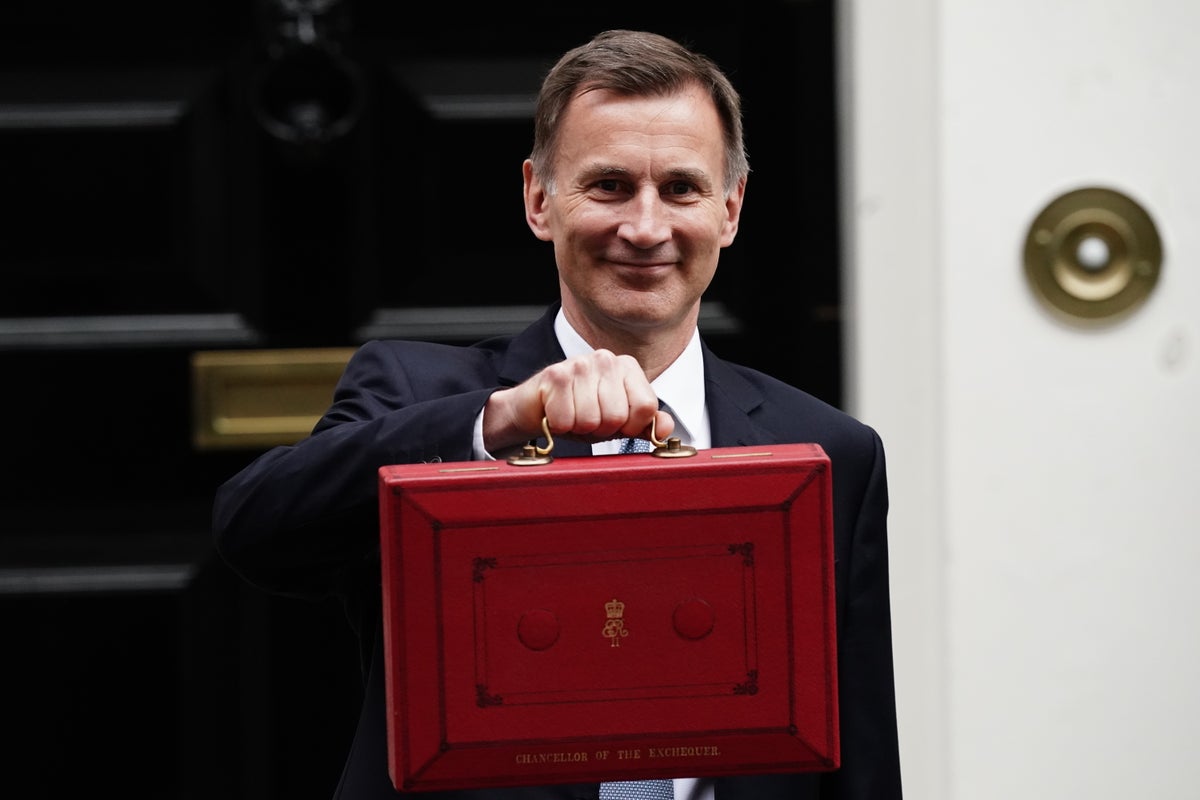
Sign up for the View from Westminster email for expert analysis straight to your inbox
Get our free View from Westminster email
Jeremy Hunt’s economic forecasts last year were based on “questionable assumptions” and beyond “a work of fiction”, the public finance watchdog has warned.
Richard Hughes, chair of the Office for Budget Responsibility, made the scathing intervention at the House of Lords economic affairs committee yesterday, warning the chancellor had left himself a “tiny” margin for error against the UK government’s debt-reduction rules.
Mr Hughes said that policymaking could be improved if chancellors gave themselves a larger margin for error, warning that the current projected headroom “is very small relative to the forecast errors inherent in any forecasting process, including ours”.
He said that the £13bn budget headroom forecast in November for the autumn statement was vulnerable to changing assumptions on interest rates and data revisions.
Mr Hughes also said that he was disappointed that he was asked to provide a forecast to be published alongside Jeremy Hunt’s autumn statement back in November without being given any information about Whitehall departmental budgets, apart from a headline figure that showed them having fallen over five years.
Office for Budget Responsibility provide a forecast to assist the Chancellor in his upcoming budget
(PA)
He told the Committee that the OBR’s forecasts were based on “questionable assumptions” and that some people called his projections “a work of fiction”.
He said November’s estimates were “a tiny number compared to the risks you face” and that historically, UK governments have tended to go “very close to the wire” when it came to fiscal rules.
The headroom figure is a measure of how much budgetary margin Hunt has to meet his target of reducing the ratio of government debt to GDP in five years’ time, and is vital for determining the extent to which the government can cut taxes or increase public spending.
Fresh speculation around the prospect of tax giveaways has been high this week, as both Mr Hunt and Rishi Sunak have stoked up expectations that government may have use the expected headroom for tax cuts.
Last week at the World Economic Forum conference in Davos, Switzerland, Mr Hunt hinted heavily that more tax cuts are on the way, saying that tax cuts would be “very pro-growth”.
Mr Hunt hinted at the prospect of tax cuts during his visit to Davos last week
(AP)
Official figures released on Friday showed that Hunt may have as much as £20bn spare in his March budget, based on higher-than-expected tax receipts and lower inflation and reductions in interest rates.
The government is expected to use this windfall to commit to tax cuts rather than large increases of public spending, in order to satiate demands from the right of the Conservative party and stoke favour with the public in the run up to a general election.
The Treasury said: “While we have doubled our headroom since March, from £6.5 billion to £13 billion, it remains low by historical standards and can be wiped out by changing economic conditions.” It added: “That’s why we must stick to our plan to reduce debt by growing the economy and being responsible with spending.”
✕
Subscribe to Independent Premium to bookmark this article
Want to bookmark your favourite articles and stories to read or reference later? Start your Independent Premium subscription today.
SubscribeAlready subscribed? Log in
Popular videos
{{/link}}

